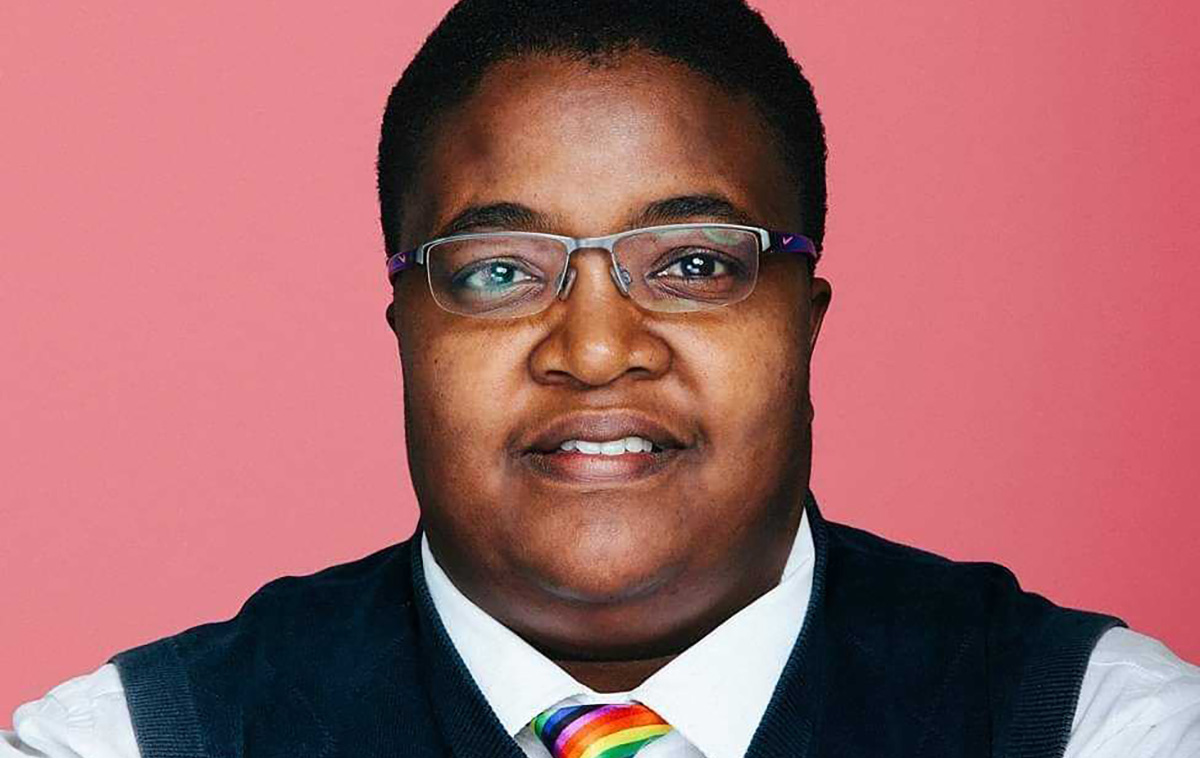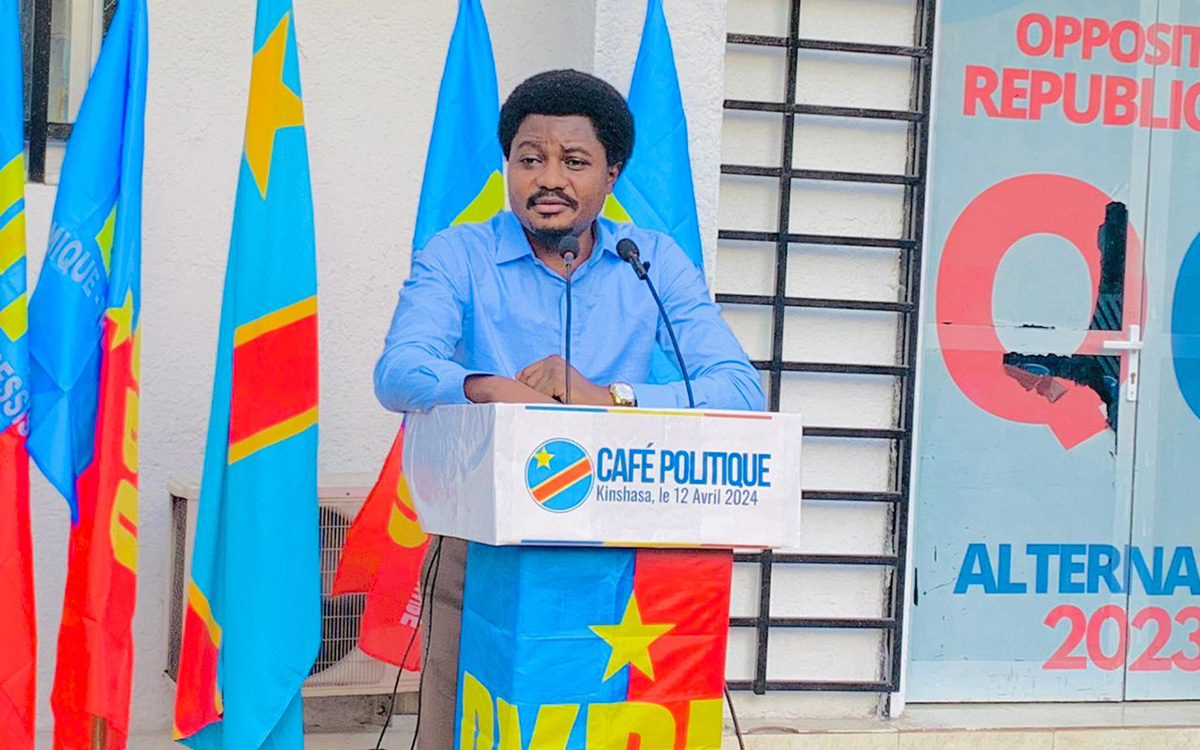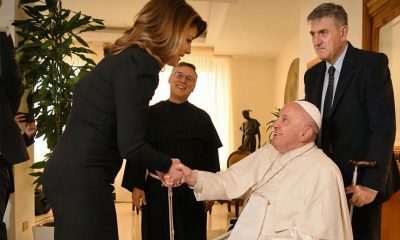Africa
Catholic bishops in Africa oppose blessings of same-sex couples
Pope Francis pronouncement has sparked criticism among clergy

The Vatican on Thursday moved to quell opposition to Pope Francis’ approval for Catholic priests to bless same-sex couples in response strong resistance from some bishops’ conferences, mostly in Africa.
The Vatican’s statement clarifying the pope’s controversial declaration last month acknowledged the dissenting bishops’ concerns by assuring them that the move was not “heretical” or “blasphemous” to the Catholic Church’s doctrines on marriage and sexuality.
The statement from the Vatican’s doctrinal office, the Dicastery for the Doctrine of the Faith, also holds that the blessings for same-sex couples should not be perceived as “a justification of all their actions and they are not an endorsement of the life that they lead.”
The five-page statement that Cardinal Victor Manuel Fernández, who is an advisor to Francis, signed further notes “if there are laws that condemn the mere act of declaring oneself as homosexual with prison and in some cases with torture and even death, it goes without saying that a blessing would be imprudent.”
The Vatican observed that Catholic bishops from such homophobic environments “do not wish to expose homosexual persons to violence” and urged “pastoral prudence” to navigate punitive local laws and situations in administering simple, short blessings to same-sex partners, but not as church rituals or resemble a wedding.
Despite this clarification on Catholic priests blessing people in same-sex relationships, the dissenting African bishops’ conferences have vowed to stick to the church’s old, Biblical order that recognizes marriage between a man and a woman, and homosexuality as a sin.
The Kenya Conference of Catholic Bishops through a statement maintains that they do not bless people for what it asserts are immoral actions in which they engage. The KCCB said it hopes the blessings and prayers offered to them as human beings would provoke them to return to God’s ways.
“The work of the church is to gather the scattered, recover the lost and redirect all sinners back to the fount of salvation and eternal life and that is Jesus Christ our savior,” said Rev. Martin Kiviva, who chairs the KCCB. “No blessing can be understood outside the context of God’s will and the salvation and invitation to Communion with God.”
The Nairobi Archbishop Philip Anyolo concurred with Kivuva and prohibited priests in Kenya’s capital from blessing “irregular relationships, unions or same-sex couples.”
“Any form of blessing of same-sex unions and activities would go against God’s word, the teachings of the church, the African cultural traditions, the laws of our nations and would be scandalous to the faithful,” Anyolo stated.
Catholic Bishops in Tanzania, where homosexuality is prohibited under the law with prison terms just like in Kenya, have also opposed the blessing of same-sex partners.
Bishop Flavian Kassala, vice chair of the Tanzania Episcopal Conference, on Dec. 25 dismissed the existence of same-sex unions which he termed as “dirty” and contravenes God’s covenant on marriage and procreation. He vowed that he would rather bless a “stone” for his faithful to construct a house with than blessing same-sex couples.
Uganda’s Episcopal Conference, which Bishop Anthony Zziwa chairs, on Dec. 25 weighed in Vatican’s declaration by stating that his country criminalizes homosexuality and affirmed that blessing same-sex couples would be breaking the law.
“Culturally, same-sex marriage has no room in Uganda and Africa,” Zziwa said at a press briefing. “The purpose of marriage is to have children. People of the same sex can’t get married and fulfill this purpose as stated in the book of Genesis.”
The East African clerics’ position on Francis’ pronouncement also received Burundian President Évariste Ndayishimiye’s backing. The staunch Catholic on Dec. 30 criticized same-sex unions as “abominable practice” and that gay couples should be publicly stoned.
Other Catholic bishops’ conferences in Africa that have opposed the Vatican’s declaration for priests to bless same-sex couples include those in Rwanda, Zambia, Nigeria, Malawi, Cameroon, Cote d’Ivoire, Togo and Angola.
The Zambia Conference of Catholic Bishops noted that same-sex unions and activities are illegal in the country and that the blessing of gay couples cannot be implemented there.
“The conference would like to earnestly invite all those involved in same-sex unions to embark on the path of conversion with greater trust in God’s mercy and love; God whose ‘eyes are drawn to the person of humbled and contrite spirit,’” Archbishop Ignatius Chama, who is the ZCCB’s president, said in a statement that other clerics signed.
Archbishop Lucius Ugorji, president of the Catholic Bishops Conference of Nigeria, meanwhile, also held that it is impossible to bless same-sex unions and acts as it goes against God’s law, the church’s teachings, Nigeria’s laws and the cultural sensibilities of citizens.
Africa
Lesbian South African MP named to country’s new Cabinet
Steve Letsike won a seat in the National Assembly on May 29

South African President Cyril Ramaphosa on Sunday appointed lesbian MP Steve Letsike to his Cabinet.
Letsike, founder of Access Chapter 2, a South African advocacy group who is a member of the African National Congress that Ramaphosa leads, will be the country’s deputy minister of women, youth, and people with disabilities.
Letsike won a seat in the South African National Assembly in national and provincial elections that took place on May 29.
The ANC lost its parliamentary majority that it had had since Nelson Mandela in 1994 won the South African presidency in the country’s first post-apartheid elections. Ramaphosa on Sunday announced Letsike and other new Cabinet members after the ANC and nine other parties agreed to form a National Unity Government.
The Washington Blade has reached out to Letsike for comment.
Africa
Congolese justice minister orders prosecutor general to arrest LGBTQ allies
Constant Mutamba issued directive on June 15, implementation unclear

Congolese Justice Minister Constant Mutamba has instructed his country’s prosecutor general to arrest LGBTQ allies.
The newly appointed justice minister in a June 15 communique said the prosecutor general should initiate legal proceedings against people who advocate for the LGBTQ community in Congo.
Although same-sex marriages are constitutionally prohibited, there is currently no law that criminalizes consensual same-sex sexual relations. The communique has raised a lot of eyebrows from social and LGBTQ activists who are asking on what grounds Mutamba issued the communique.
“He could have started by initiating a bill in this direction, but in the current Congolese legislation he is missing the point,” said Jean Claude Katende, a Congolese human rights activist who is the president of the African Association of Human Rights. “If he wants to repress homosexuals, he must initiate a law which must make this behavior an offense and have it punished. He will be arrested for complicity in arbitrary arrests. The constitution is clear, no one can be prosecuted for an act which does not constitute an offense.”
Khelver Hermano, a Congolese social commentator, said the law should not be interpreted based on one person’s emotions.
“LGBT marriage is already not applied in the DRC but the minister wants to incarcerate those who do it informally without a legal basis,” said Hermano. “The law is not interpreted according to our will.”
“Does the penal code in the DRC recognize polygamy? Why don’t we arrest all these known polygamists?” asked Hermano. “Just as polygamists are not prosecuted, we cannot do so against LGBT people.”
Many Congolese people, however, have welcomed the communique, arguing same-sex relations are un-African and unorthodox.
Article 172 of the country’s penal code states a person “who commits a moral crime by exciting, facilitating or promoting to satisfy the passions of others, debauchery or the corruption of persons of either sex under or apparently under the age of 21 years shall be punishable by a prison term of three months to five years or a fine.” Article 176 says a person “who engages in activities against public decency shall be punishable by a prison term of eight days to three years and/or a fine.”
Although not entirely applicable, the prosecutor general can use these two penal code articles to initiate the arrests — the country in recent years has seen some arrests of LGBTQ people.
The June 15 communique is not the first time Mutamba has come out against the LGBTQ community.
Mutamba earlier this year introduced a bill that would criminalize acts of homosexuality. The proposal received widespread support, particularly on social media where many Congolese people described it as a turning point for the country and for the continent at large.
Although parliament has not formally debated the bill, activists are concerned it will pass without many major objections because most MPs have previously said they do not support the LGBTQ community. It remains unclear how the prosecutor general will executive Mutamba’s communique.
Africa
Prominent South African activist elected to country’s parliament
Steve Letsike founded Access Chapter 2

A prominent South African LGBTQ activist has won a seat in the country’s parliament.
Steve Letsike, a lesbian woman who founded Access Chapter 2, a South African advocacy group, is a member of the African National Congress. She is also part of the ANC’s National Executive Committee that determines the party’s direction.
Letsike won a seat in the South African National Assembly in national and provincial elections that took place on May 29.
The ANC lost its parliamentary majority that it had had since Nelson Mandela in 1994 won the South African presidency in the country’s first post-apartheid elections. MPs earlier this month re-elected President Cyril Ramaphosa after the ANC invited the Democratic Alliance and other parties to form a Government of National Unity.
Letsike in a statement to the Washington Blade described her election as “a milestone for the people of South Africa, and also affirmative of our party’s posture that is inclusive and intention to transformation agenda.”
“I am not in parliament for myself but the people that trusted the ANC to send individuals that will put people first,” said Letsike. “In that cohort that includes the LGBTI people like myself. Rooted in the teaching of a just society, that seeks equality and believes in the rule of law. That demand on developmental agenda from a queer lens and clear priorities of the people is important.”
“I am delighted by this task, trust and hope for our people,” she added.
-

 Canada1 day ago
Canada1 day agoToronto Pride parade cancelled after pro-Palestinian protesters disrupt it
-

 Theater4 days ago
Theater4 days agoStephen Mark Lukas makes sublime turn in ‘Funny Girl’
-

 Baltimore3 days ago
Baltimore3 days agoDespite record crowds, Baltimore Pride’s LGBTQ critics say organizers dropped the ball
-

 Sports4 days ago
Sports4 days agoHaters troll official Olympics Instagram for celebrating gay athlete and boyfriend








